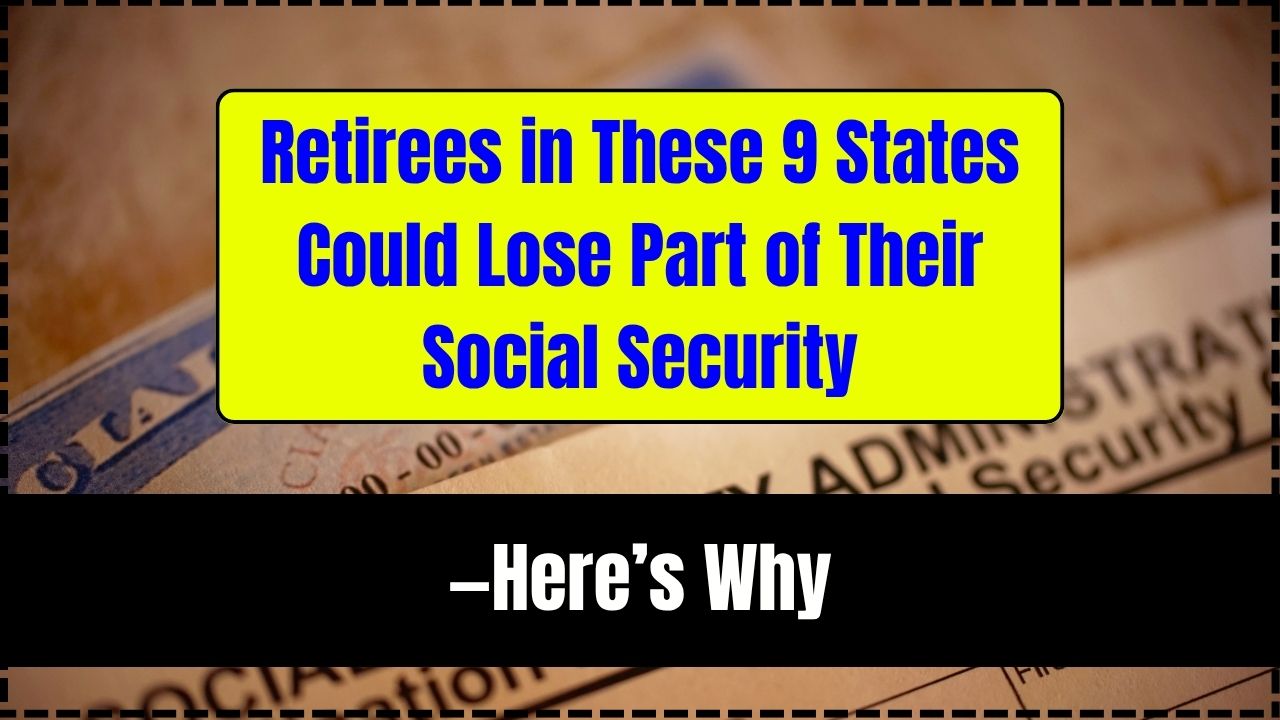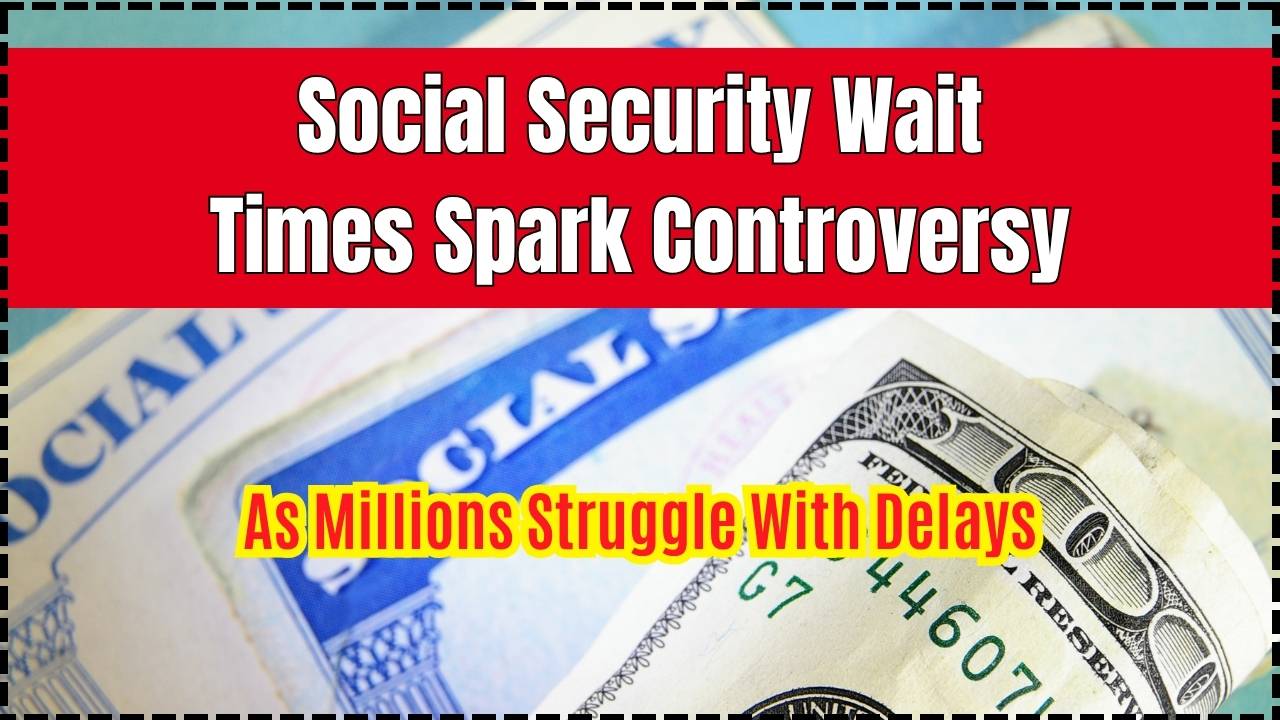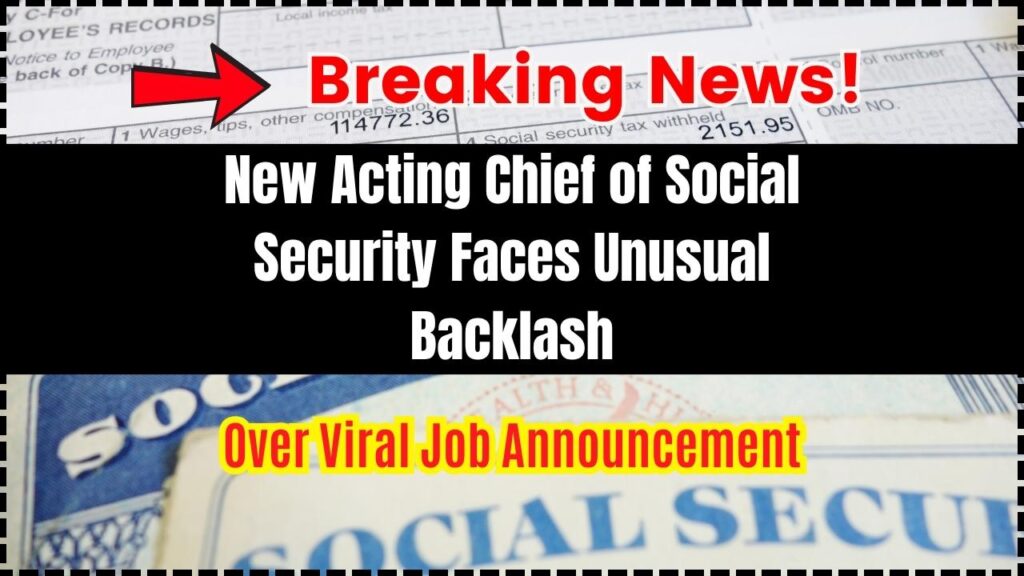
New Acting Chief of Social Security Faces Unusual Backlash: When Frank Bisignano, former Wall Street executive and Fiserv CEO, was officially sworn in as the Acting Commissioner of the Social Security Administration (SSA) in May 2025, no one expected his first public comment to go viral. During a virtual town hall with SSA employees, he joked, “I had to Google what the heck the Commissioner of Social Security even does.”
For a program that serves over 72 million Americans, including retirees, disabled individuals, widows, and children, that comment didn’t sit well. It didn’t take long for the quote to make the rounds on social media, drawing both laughter and outrage. But this isn’t just about one offbeat comment. It’s about whether America’s most trusted safety net is in good hands. This article breaks down the controversy, explains how the SSA is changing under new leadership, and what it means for you, your family, and your future benefits.
New Acting Chief of Social Security Faces Unusual Backlash
Frank Bisignano’s arrival at the SSA brings both promise and peril. His business experience could help modernize slow systems, but many worry he lacks the empathy and public service background needed to lead a human-centered agency. For millions of Americans who rely on Social Security, this isn’t just about politics or tech. It’s about trust, access, and survival. If you’re one of the millions who count on SSA, stay informed, stay organized, and don’t hesitate to speak up if something doesn’t feel right. Leadership may change—but your right to be served fairly doesn’t.
| Topic | Details |
|---|---|
| New Commissioner | Frank Bisignano |
| Date Sworn In | May 7, 2025 |
| Viral Moment | Admitted Googling the SSA Commissioner’s role |
| Job Cut Controversy | Over 7,000 SSA jobs cut in 2024–2025 |
| Political Vote | Confirmed 53–47 in the U.S. Senate |
| Public Concerns | AI overreach, reduced access, potential privatization |
| Impacted Programs | Social Security Retirement, SSDI, SSI, Medicare |
| Official Website | ssa.gov |
Who Is Frank Bisignano and Why the Fuss?
Frank Bisignano isn’t a career public servant. He’s a former Wall Street executive, best known for running Fiserv, a fintech company that processes credit card and banking transactions. Before that, he held senior roles at JPMorgan Chase, leading large-scale digital banking initiatives.
He was tapped by President Trump to help modernize the federal government through a unit called the Department of Government Efficiency (DOGE) — a tech-driven task force spearheaded by Elon Musk. Within a year, DOGE led aggressive cost-cutting measures at several federal agencies, including the SSA.
When Bisignano was promoted to SSA Commissioner in 2025, critics raised the alarm: a corporate exec with no experience in public benefits now running the nation’s most complex entitlement agency? Then came the now-infamous quote about Googling the job. Public trust, already shaky, took a further hit.
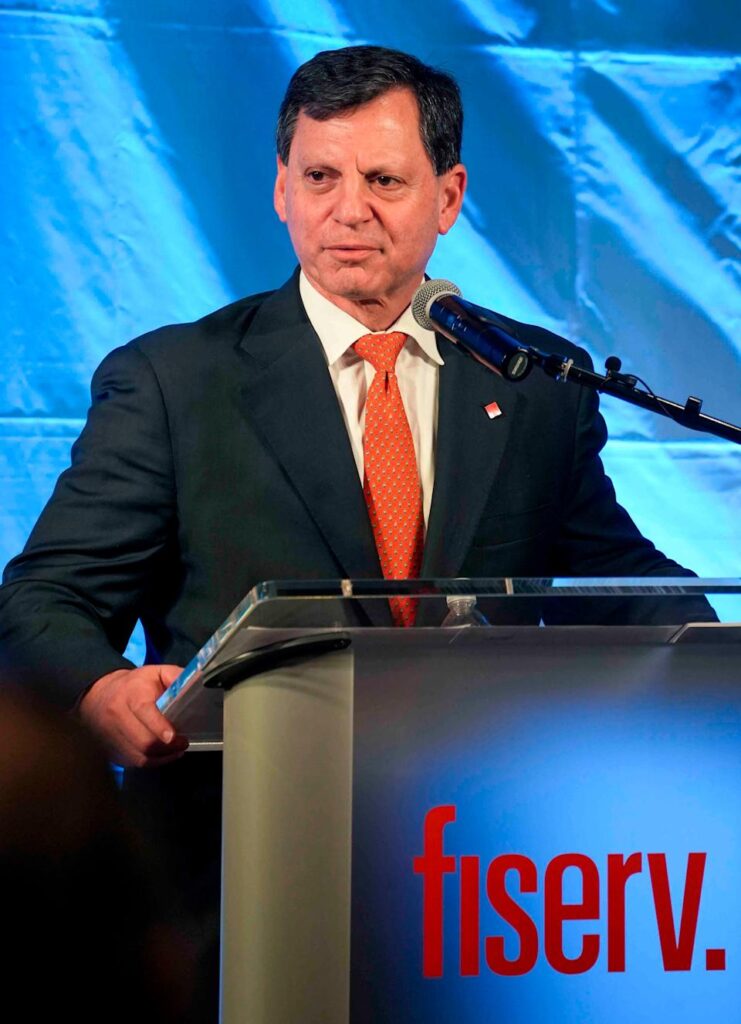
Why the New Acting Chief of Social Security Faces Unusual Backlash Is So Intense?
1. Loss of Institutional Knowledge
Over 7,000 federal workers were laid off or early-retired from SSA between 2023 and 2025 as part of DOGE’s “efficiency upgrade.” Many of them had decades of experience navigating the intricacies of disability cases, retirement eligibility, and survivor benefits.
Now, many of those roles are being replaced by automated digital systems and AI-powered review processes that, critics argue, miss the human judgment needed for nuanced cases.
2. Field Office Closures
Since 2023, nearly 240 SSA field offices have closed, mostly in rural and underserved communities. These offices were lifelines for seniors, veterans, people with disabilities, and Native American populations who rely on in-person assistance due to lack of broadband, language barriers, or physical challenges.
Instead, the agency has shifted toward an “online-first” model that heavily relies on automated systems and mobile apps.
3. AI Taking the Wheel
The SSA’s new tech stack, led by DOGE engineers, uses artificial intelligence to handle initial application sorting, fraud detection, and even some parts of the appeals process. While this has sped up some processes, there have also been increased reports of automated claim denials, wrongful rejections, and long delays in getting issues resolved by a human being.
This has sparked fears that the system is being transformed from a supportive safety net into an efficiency machine focused more on metrics than people.
What Does the SSA Commissioner Actually Do?
The Social Security Commissioner serves as the chief executive of the agency. This means they manage:
- A budget of over $1.4 trillion annually
- Disbursement of monthly benefits to over 72 million Americans
- An agency workforce of nearly 60,000 people
- Oversight of programs like Social Security Retirement, SSI, SSDI, and links to Medicare
Traditionally, this role has gone to experienced administrators or public servants. It’s not just an executive desk job—it’s a stewardship position for one of America’s oldest and most impactful public programs.
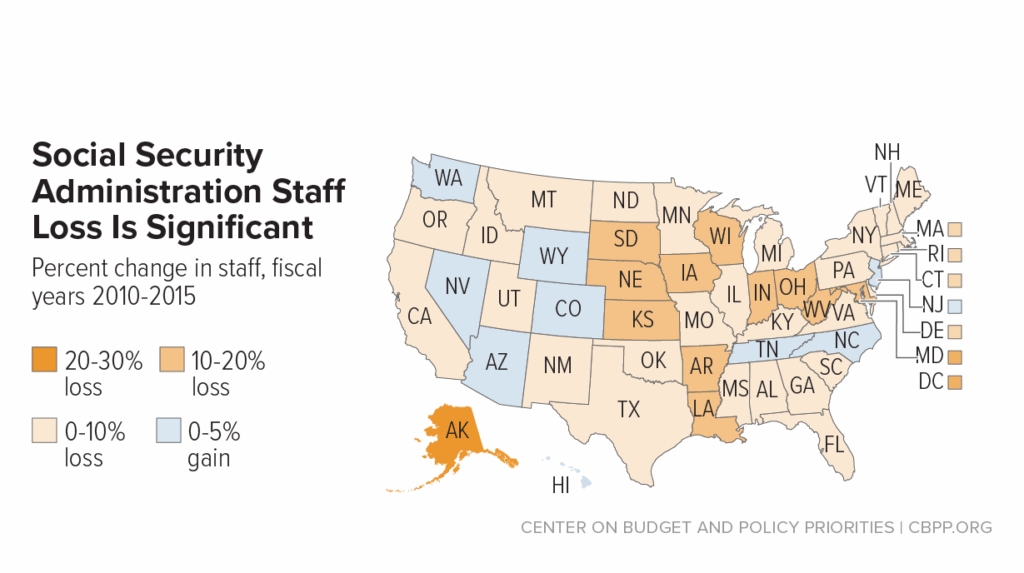
Social Security Programs at a Glance
Here’s a refresher on the core programs under SSA’s umbrella:
| Program | Who It Helps | Monthly Average (2024) |
|---|---|---|
| Social Security Retirement | Americans 62+ based on earnings record | $1,907 |
| SSDI (Disability Insurance) | Workers with qualifying disabilities | $1,483 |
| SSI (Supplemental Security Income) | Low-income elderly or disabled people | $575 |
| Survivor Benefits | Widows, widowers, and dependent children | Varies |
Traditional SSA vs. DOGE-Era Reforms
| Feature | Traditional SSA Model | DOGE-Era Reform Model |
|---|---|---|
| Access | In-person field offices, paper mail, phone | Mobile app, chatbot, online portals |
| Review Process | Human examiners, layered checks | Automated AI sorting, fewer manual reviews |
| Decision Speed | 4–6 weeks average | Goal: < 7 business days |
| Accuracy and Fairness | High with human oversight | Concerns about bias and errors from automation |
Advocacy groups warn that speed and savings are coming at the cost of access and equity.
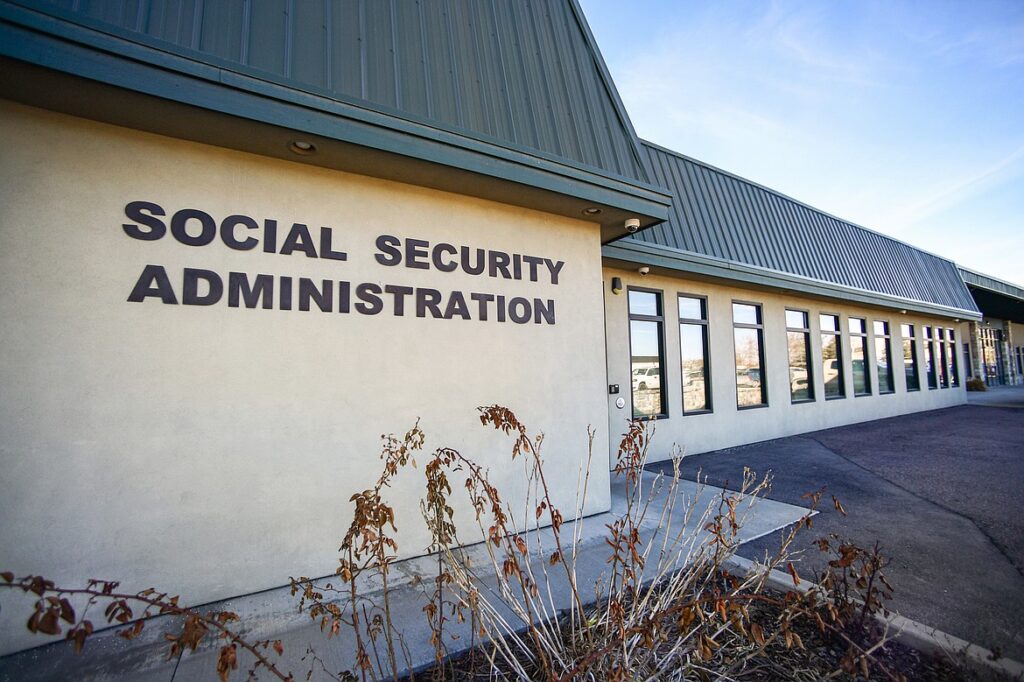
Expert Perspectives
Martin O’Malley, the SSA Commissioner before Bisignano, criticized the new appointment, saying:
“Social Security isn’t a company. You don’t measure success by profit margins. You measure it by how well you serve the most vulnerable.”
Linda Chavez-Thompson, former vice-chair of the Social Security Advisory Board, noted:
“Digital tools should support people, not replace them. We’re not selling phones here. We’re delivering dignity.”
Employee Reactions Inside the SSA
Internal reports from Federal Employee Union Local 432 show that morale has plummeted. In one staff poll:
- 71% said they were “less confident” in leadership than in 2023
- 58% reported an increase in errors due to rushed processes
- 36% said they considered early retirement in 2025 due to new policies
Some former employees have even filed whistleblower complaints, claiming the AI tools “flag errors that don’t exist” and “reject claims at alarming rates.”
How This Affects You – A Practical Guide
Whether you’re receiving benefits or expect to in the future, here’s what you can do now:
1. Open a MySSA Account
Go to ssa.gov/myaccount and sign up to track your work history, benefit eligibility, and payment status.
2. Keep Paper Copies
Always save hard copies of benefit award letters, appeals, and any decisions. If systems go down, paper is your best backup.
3. Double-Check Your Earnings Record
Make sure your wages and contributions are accurately listed. Even small errors can impact retirement benefits.
4. Contact SSA Smartly
Use online chat if possible, but don’t hesitate to call SSA directly: 1-800-772-1213. For complex cases, request escalation.
5. Know Your Appeal Rights
If you’re denied benefits, you have the right to appeal.
SSI and Social Security 2025 Payouts Revealed—Check the New National Averages Now
Goodbye to Retirement at 65: Social Security Raises the Bar—Starting in 2026
Hidden Threat to Social Security Could Cost Retirees Thousands — What You Must Know Now
What This Means for Native and Rural Communities?
Tribal and rural communities are often the most affected by office closures. Many residents lack high-speed internet, digital literacy, or live hours from the nearest SSA location. With fewer in-person services, this creates real obstacles to accessing help.
Community centers, tribal governments, and local health organizations may need to fill the gap by offering internet access, translation support, and case assistance.
What Comes Next?
Here’s what to watch for in the coming months:
- Potential class-action suits around AI errors in disability denials
- Congressional hearings on SSA automation and accessibility
- Inspector General investigations into internal whistleblower claims
- New digital tools, including mobile retirement estimators and chatbot appeals assistants


